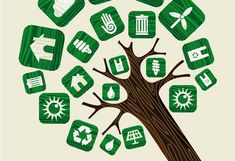Sustainability in Teaching
"We enable our students to deal critically with questions of the future and to help shape solutions for the global challenges of our time!"
Education is an essential prerequisite for promoting sustainable development and improving people's ability to deal with environmental and development issues.
As a teaching and educational institution that has committed itself to the sustainable development of our society, the university has the responsible task of enabling its students to actively promote sustainable transformation. By imparting sustainability expertise on the one hand and actively promoting sustainability skills on the other hand, BOKU students and graduates are qualified to work in practice in the development of ecologically compatible, economically efficient and socially just solutions. Within the range of courses at the University of Natural Resources and Life Sciences, great attention is paid to imparting the necessary knowledge and promoting skills. In accordance with the BOKU fields of competence in teaching, a large number of topics relevant to sustainability are scientifically processed.
Depending on the subject area, BOKU students deal, for example, with issues of food and food security, develop innovative solutions in the area of infrastructure and water, deal with concepts for the sustainable use of natural resources, learn about biodiversity and the sustainable development of rural and urban areas, are looking for new solutions in the field of biotechnology or work on topics of social transformation.
Important cornerstones for the sustainable design of BOKU teaching are the structural and content anchoring of Education for Sustainable Development (BNE) as well as the promotion of interdisciplinary and transdisciplinary teaching. Since the exchange and critical reflection are of great importance when dealing with sustainability issues, the provision and promotion of spaces for discussion and reflection are also central.
What is Education for Sustainable Development (BNE)?
When we talk about education for sustainable development, it is essentially about the ability to act responsibly and in a sustainable manner that enables sustainable development. In order to be able to master the global challenges (the so-called “Grand Challenges”) of our time, sustainable solutions are required. It is therefore important that the decision-makers of tomorrow not only have the necessary specialist knowledge, but also central sustainability skills such as system understanding, problem-solving skills and the ability to reflect, but also the ability to negotiate social norms and (future) ideas. The BOKU would like to pass both on to its students and encourage them to do so.
A central aspect of BNE is the use of suitable didactic approaches and greater student involvement. This includes discursive, participatory forms of teaching, system- and problem-solving-oriented considerations as well as inter- and transdisciplinary approaches. This strengthens the cooperation and dialogue between teachers and students. In order to be able to integrate sustainability into teaching in terms of content and didactics, the teaching staff must also have the appropriate skills. Therefore, teacher training in the field of BNE at the BOKU is an essential lever.
Inter- and transdisciplinary in the BOKU teaching
Interdisciplinarity means that problems and issues are not only viewed from the perspective of one subject, but that approaches and methods from several subject areas are used in order to understand problems and find solutions. The exchange between the disciplines and the merging of knowledge are important here. In their professional life, many of the BOKU students will work across sectors. The education at the BOKU is intended to prepare them to communicate with actors from different specialist areas and to be able to work together on issues.
The transdisciplinary teaching is about including actors from practice and their knowledge, experience and values in the processing of a problem or question. The cooperation and interaction with practitioners in the context of courses promotes transdisciplinary skills of the students at an early stage. In this context, BOKU students learn to work on issues together with those affected.
Spaces for reflection in teaching
The ability to reflect critically on content and to build on it to lead constructive discussions is not only an important basic skill in an academic context, but also a cornerstone of sustainable development. The critical examination of prevailing conditions and structures paves the way for alternative ideas, innovative solutions and new perspectives that support a change towards a sustainable society. However, transformation processes are never straightforward and contain numerous areas of tension and contradictions between different goals that are constantly being negotiated. These have to be thematized and workable.
The BOKU wants to be a place where future-oriented ideas are forged and innovation is promoted. Therefore, spaces are needed that enable creativity, critical debates and self-reflection.
Examples of such rooms are:
- The Lectures for Future
- Students in Discourse
- Course Courage for Sustainability

